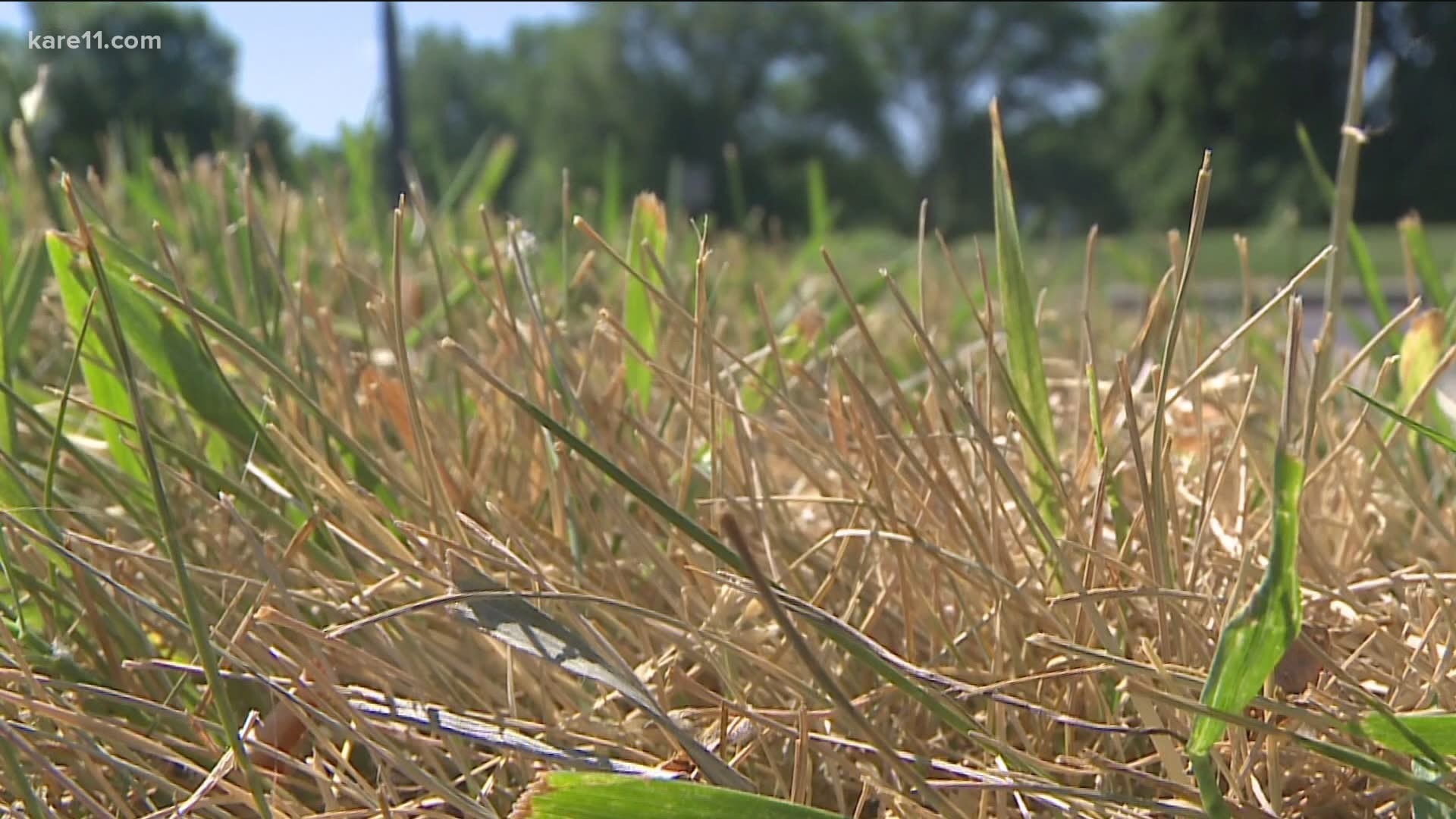MINNEAPOLIS — The City of Minneapolis and several surrounding communities are implementing water sprinkling restrictions as Minnesota's widespread drought continues.
In Minneapolis, the restrictions begin Wednesday and continue until further notice, the city said in a press release Tuesday. Officials said the rules are meant to "reduce demand" on the Mississippi River. This means no sprinklers on your lawn from noon to 6 p.m. any day. After 6 p.m., if you live on the end-numbered side of your street, you can run your sprinkler on even numbered days, like July 22. The same applies for the odd-numbered side of the street and odd numbered days.
The city said there are some exceptions. Bushes and flowers can be watered with a hand-held hose "as needed," and vegetable gardens and new sod can be watered on any day - as long as it's outside the noon to 6 p.m. window. Trees can be watered with a dripping hose, bucket, or tree watering bag "as needed."
Also included in the restrictions are the Joint Water Commission (JWC) of Crystal, Golden Valley and New Hope, who purchase their water from Minneapolis. The watering rules are the same, no sprinklers between noon and 6 p.m., and exceptions are made for bushes, flowers, vegetable gardens and new sod.
St. Paul Regional Water Services asks people to follow even-odd watering restrictions for all outdoor water usage, not just sprinklers, and conserve water in other ways.
The Hastings City Council passed an emergency resolution on Tuesday night, prohibiting residents from watering between 11 a.m. and 6 p.m. on any day of the week. The resolution also prohibits washing your car outdoors and using water for play except in pools where the water is captured and recirculated.
Other metro cities, including Maple Grove, have announced similar rules.
These decisions follow the DNR's announcement that Minnesota has entered a "drought warning phase." The department said 52% of the state is seeing "severe drought" as of Tuesday.
While it's not part of the restrictions, residents and businesses are being encouraged to help out by following water conservation practices, including turning off the faucet when it's not in use, using low flow shower heads, reducing dishwasher and washing machine use, and more.

